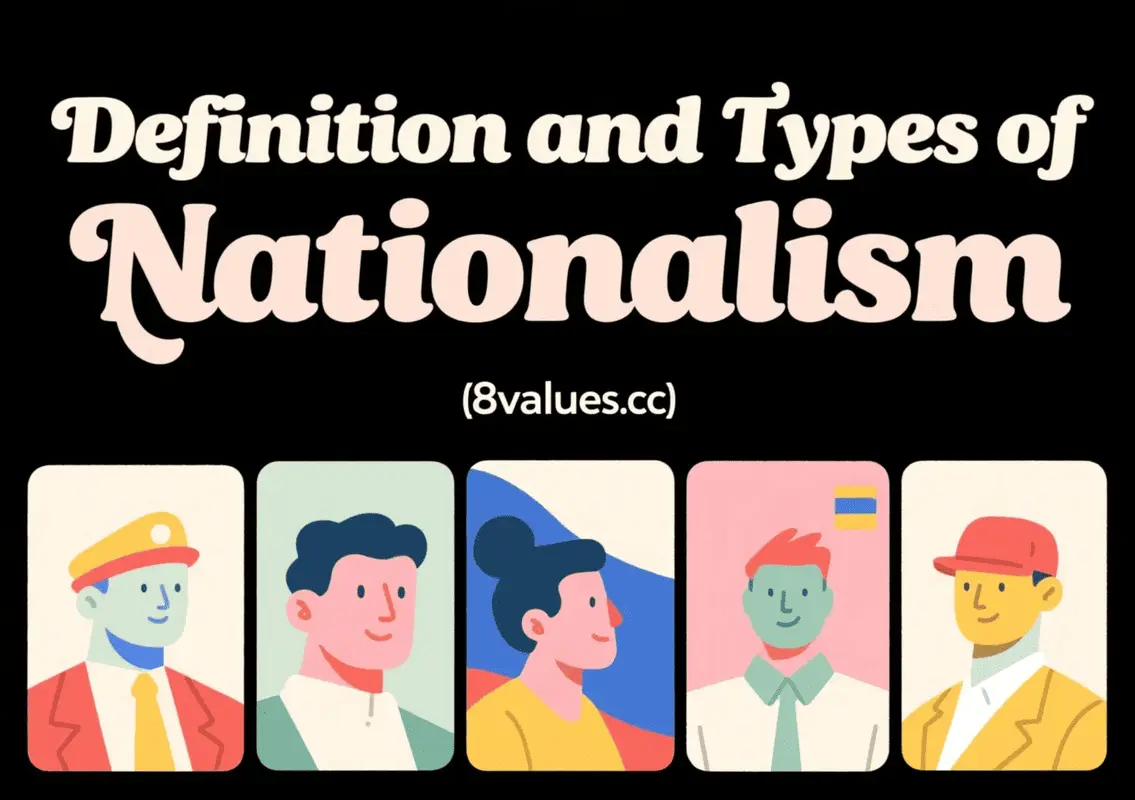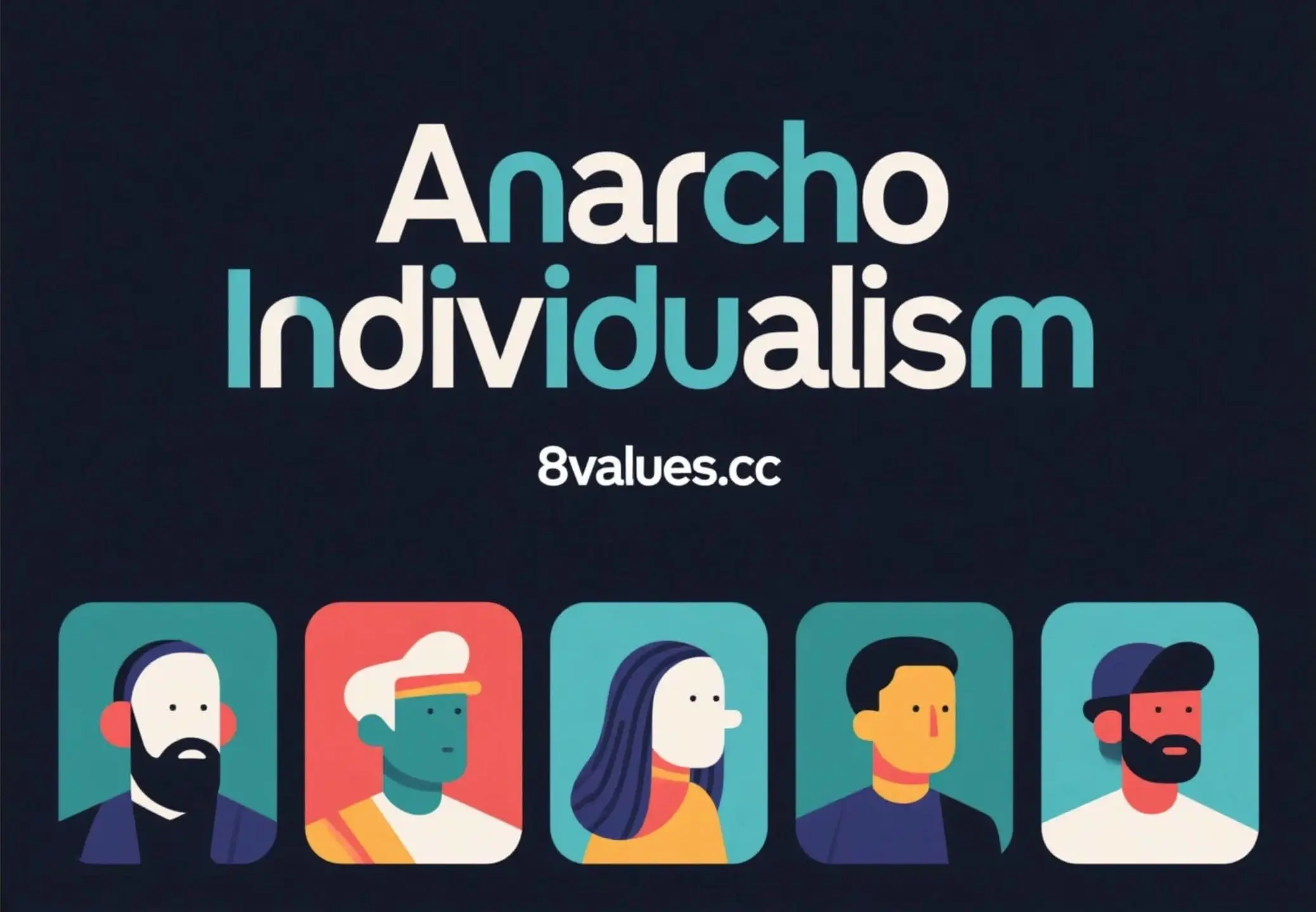La définition et le type de nationalisme: l'évolution et les dommages du totalitarisme national de l'identité saine au totalitarisme national
Une discussion approfondie sur les diverses manifestations du nationalisme, de l'identité nationale saine au nationalisme extrême avec exclusivité, de la supériorité et de l'expansion, ainsi que de la définition, des caractéristiques, des racines historiques du totalitarisme national formé en combinaison avec le totalitarisme et ses préjudices de grande envergure à la société et aux droits de l'homme.
Le nationalisme est un concept politique qui met l'accent sur l'identité nationale, les intérêts nationaux et l'unité nationale. Cependant, lorsque cette idée va à l'extrême, elle évoluera vers un nationalisme extrême et se combinera souvent avec des régimes totalitaires pour former le totalitarisme national .
Définition et types de nationalisme
1. Expression normale du nationalisme
Le nationalisme sain se reflète généralement dans le niveau de maintenance de la culture nationale et de rechercher l'égalité nationale . Il met l'accent sur un sentiment d'appartenance en groupe, une histoire et une culture communes, et contribue à l'unité et au développement de la nation.
2. Nationalisme extrême (ethnonationalisme / chauvinisme)
Contrairement au nationalisme sain, l'extrême nationalisme a une forte exclusivité, une supériorité et une expansion , et est le fondement idéologique du totalitarisme national. Ses caractéristiques de base comprennent:
- Théorie nationale de la supériorité : affirme qu'une nation spécifique (généralement la nation à laquelle appartient le groupe dirigeant) a une "supériorité naturelle" dans la culture, le sang, l'histoire ou le "niveau de civilisation", et définit d'autres nations comme des "étrangers", des "groupes inférieurs" ou même des "menaces".
- Exclusivité nationale : considérer la «pureté nationale» comme la clé de l'existence du pays, et exclut toutes les identités culturelles, de langue, de religion ou d'identité «non nationales». Dans les cas extrêmes, les lois et les politiques peuvent même restreindre l'éducation, l'emploi et les droits de résidence de différents groupes ethniques et même déclencher le "nettoyage ethnique".
- Objectifs nationaux absolus : mettre surtout les «intérêts nationaux» (comme l'expansion territoriale, «l'unification» nationale et l'élimination des «traitors nationaux»), y compris les droits de l'homme, l'état de droit, les règles internationales et même atteindre des objectifs par la guerre et la violence.
- Narrative de vengeisme et de victimisation : il prêche souvent que la nation a subi l'injustice et l'humiliation dans l'histoire et a besoin de "se venger" ou de "renouveau" à travers un régime puissant.
- Instrumentalisation de l'histoire et de la culture : utilisez l'histoire nationale et les symboles culturels (tels que la langue et la religion) pour renforcer la mémoire collective et façonner des "ennemis communs" pour rassembler l'identité interne. Par exemple, le militarisme japonais a renforcé l'adoration des empereurs par le shintoïsme et a incité à l'expansion externe.
- Traitez les minorités ethniques comme «vide social» : pour les totaliens nationaux armés par le totalitarisme, les minorités ethniques sont essentiellement «vides sociaux» et un domaine ouvert où des expériences sociales peuvent être menées à volonté. Leur longue histoire et leur culture, les contributions au pays et leur existence réelle en tant que nations indépendantes sont complètement ignorées et ignorées.
- Conflit avec l'innovation technologique : il existe un conflit irréconciliable entre la nature fermée du chauvinisme national et la libre circulation des informations requises pour l'innovation technologique.
La combinaison et l'expression du totalitarisme national
Le totalitarisme national (totalitarisme ethnonationaliste) est une combinaison de deux logiques politiques dangereuses: le nationalisme extrême et le totalitarisme. Il prend un nationalisme extrême comme idéologie centrale et favorise ce système politique idéologique par des moyens totalitaires. Dans ce modèle, le renforcement de l'exclusivité de l'identité nationale est son cœur, visant à renforcer un contrôle complet sur la société, l'économie, la culture et même la vie personnelle, réalisant finalement un monopole de groupes ethniques spécifiques sur le pouvoir de l'État et supprimant toutes les forces hétérogènes.
Les caractéristiques typiques de ces combinaisons comprennent:
- Le rajeunissement national ou la pureté nationale devient l'objectif le plus élevé : toutes les actions du régime, qu'il s'agisse de politiques économiques, de culture et d'éducation, de diplomatie et de militaires, servent des objectifs nationalistes extrêmes tels que "rendre la nation à nouveau grand", "purifiant la sangaire national" ou "saisir l'espace de vie".
- La définition de la «nation» est monopolisée et instrumentalisée par le régime : le régime décide qui appartient au «peuple», qui est les «ennemis de l'État», et les ennemis sont généralement des «traitors» internes, des «conspirateurs» externes et des minorités diabolisantes.
- Les individus sont complètement obéissants au collectif national : les droits, les libertés et la valeur de la vie de l'individu sont complètement refusés, et le seul sens de l'existence est de sacrifier pour les grands objectifs de la nation.
- Créez le fanatisme grâce à la mobilisation et à la publicité continues : utiliser des défilés, des rassemblements et une publicité des médias pour renforcer continuellement le sentiment de supériorité nationale et de peur des menaces externes pour maintenir le soutien et l'obéissance des gens.
- Conflit irrésistible : il existe un conflit irréconciliable entre les besoins des minorités ethniques et les exigences des totaliens nationaux.
Une compréhension approfondie du totalitarisme national: définitions et caractéristiques
Le totalitarisme national est un système politique qui prend l'extrême nationalisme comme son idéologie centrale et favorise cette idéologie par des moyens totalitaires. Il combine des éléments du totalitarisme (contrôle total de la société) avec l'exclusivité ethnique ou raciale, préconisant l'identité d'un groupe ethnique particulier comme noyau de légitimité politique.
1. Pureté nationale et contrôle global
Les États totalitaires nationaux utiliseront leurs mécanismes totalitaires pour promouvoir et appliquer la soi-disant pureté raciale ou culturelle de la nation dominante . Cela signifie que l'État a des informations rigoureusement censurées et a utilisé des machines de propagande puissantes pour inculquer l'idéologie officielle au peuple. Par exemple, la machine de propagande de l'Allemagne nazie a renforcé le mythe national aryen. L'État monopolisera les médias, l'éducation et les institutions culturelles, forcera la mise en œuvre de la "théorie nationale de la supériorité" et de la "théorie nationale de la crise", supprime les doutes ou la dissidence, et même lier le peuple dans une communauté de "gouvernement national" par la "propagande de lavage du cerveau".
2. Éliminer la diversité et les objections
Le totalitarisme national cherche à éliminer la diversité et la dissidence dans la société . Il supprimera toutes les forces hétérogènes et intégrera pleinement toute la vie non politique (y compris les sphères privées telles que la famille, le travail, le socialisme, etc.) dans le contrôle de la machine d'État. Tout comportement "déloyal", tel que l'utilisation d'une langue étrangère ou la préservation d'une coutume culturelle étrangère, peut être considéré comme "trahison de la nation" et punis.
3. Logique et règne de la terreur
Hannah Arendt croit que l'essence du totalitarisme est une combinaison de terreur et de logique . La terreur n'est plus un moyen de supprimer la dissidence, mais comme un mode de domination universel, imprégnant tous les coins de la société. Cette horreur est "rationnelle", qui remplace la réalité réelle d'un gouvernement constitutionnel, vise à transformer "la loi de la mouvement de l'histoire ou de la nature" en réalité. L'État établira un système de surveillance strict tel qu'un système de police secret, supprimera la dissidence avec la violence et l'intimidation, et punirait ceux qui contestent leur pouvoir. De cette façon, le totalitarisme vise à détruire la conscience de l'individu et à transformer les citoyens en incarnation des lois historiques ou naturelles du mouvement.
4. Propagande et contrôle social
La conférence nationale de propagande favorise la supériorité nationale et assure l'obéissance et la loyauté sociales en renforçant l'exclusivité de l'identité nationale. Par exemple, l'Allemagne nazie a adopté la loi Nuremberg pour priver les Juifs des droits civils et éliminer systématiquement la culture «non aryenne». L'État monopolisera également le système éducatif, utilisera sa machine de propagande pour contrôler l'opinion publique et façonner les croyances des citoyens.
5. Détruiser l'individualité
Le but du totalitarisme national est de détruire l'individualité humaine et de transformer les citoyens en échantillons identiques et interchangeables ou des groupes homogènes d '«espèces humaines» pour servir les idéaux nationaux. Cela signifie éliminer le libre choix et la personnalité, politiser la sphère privée, y compris la famille, et nier les concepts universels des droits de l'homme.
6. "l'identité nationale" devient la seule étiquette légale
Les lois ou politiques nationales considèrent la «propriété nationale» comme la norme de base pour diviser les droits civils. Par exemple, seuls les membres de la nation peuvent occuper une fonction publique, rejoindre l'armée et participer à la prise de décision politique; Les membres de la nation peuvent ne pas être en mesure d'obtenir la pleine citoyenneté même s'ils sont nés dans leur propre pays.
7. Le double récit de la "menace externe" et de "ennemi interne"
Le régime a longtemps exagéré que "la nation fait face à un siège externe" et "il y a des traîtres à l'intérieur", recueillant le soutien des gens au régime en créant un "sentiment de crise", et en même temps trouver des excuses pour supprimer la dissidence.
8. "Reconstruction du monopole" de la culture et de l'histoire
Le régime modifiera de force les récits historiques, façonnera sa nation en «le seul créateur de l'histoire», minimiser ou discréditer les contributions historiques des nations étrangères; Dans le même temps, promouvoir de force la langue, la religion et les coutumes de sa nation, et interdire l'expression culturelle des nations étrangères.
9. La «nationalisation» des machines violentes
Les postes de base des militaires, de la police et du système judiciaire sont monopolisés par des membres de la nation. La tâche principale de la machine violente est de "maintenir la stabilité du régime national" plutôt que de protéger les droits de tous les citoyens.
10. Isolement fermé et externe
Le régime a tendance à fermer les frontières nationales et à restreindre les échanges étrangers, à empêcher l'infiltration d'idées hétérogènes externes et à éviter l'attention de la communauté internationale à l'oppression nationale.
Historiquement, l'Allemagne nazie est un exemple typique de totalitarisme avec une forte composante nationale, et son extrêmement accent sur la supériorité raciale et le contrôle totalitaire sur la société reflètent ces caractéristiques.
Les racines philosophiques et historiques du totalitarisme national
La montée du totalitarisme national n'est pas une seule raison, et ses racines théoriques et historiques sont complexes.
1. Romantisme
Le romantisme met l'accent sur la anti-rationalité, l'émotion et la volonté individuelle , et les défenseurs de la réalisation du changement social par la «mise en forme». Le mouvement des "Storm Progress" de l'Allemagne a favorisé l'éveil de la conscience nationale, mais ses tendances irrationnelles ont mis les dangers cachés pour le totalitarisme. Cette combinaison forcée de l'individualisme extrême qui nie la rationalité des Lumières et le totalitarisme au collectif aura un impact destructeur sur l'ordre traditionnel.
2. Le nationalisme de Hegel
Hegel estime que le pays est la plus haute manifestation de «l'esprit mondial» et que les individus doivent obéir inconditionnellement aux intérêts nationaux . Il a préconisé que le pouvoir de l'État était illimité et que les valeurs personnelles dépendaient de l'existence de l'État. Cette théorie a fourni une base philosophique pour "l'État de l'Allemagne nazie est plus haut du reste", aliéné le nationalisme dans un culte absolu du pouvoir de l'État, et a ouvert la voie à la domination totalitaire.
3. Théorie de la mission nationale de Fichte
Dans sa «collection de discours aux nationalités allemandes», Fichte a déclaré que la nation germanique était le «sauveur de la civilisation» et a dérogé d'autres nations à la «corruption». C'est un concept que la nation a une "mission unique" . Cette «théorie nationale des électeurs» a directement donné naissance à la logique fasciste du nettoyage ethnique et est devenu un outil idéologique pour que l'Allemagne nazie lance une guerre d'agression.
4. Scientisme et physique sociale
L'application de méthodes scientifiques naturelles aux domaines sociaux, tels que la «physique sociale» de Kong De, tente d'expliquer le développement historique avec les lois physiques, estimant que la société peut atteindre un ordre absolu par la «gestion scientifique». Le scientisme fournit le manteau de «l'objectivité» pour le totalitarisme, et ses principes abstraits (tels que la «nécessité historique») sont utilisés pour rationaliser la transformation sociale à grande échelle, et même les purges violentes.
5. Politique nationale stalinienne
Le stalinisme met en œuvre la pression politique et l'assimilation nationale au nom de "l'internationalisme prolétarien". L'Union soviétique a éliminé les différences ethniques grâce à la migration forcée et à l'unification linguistique et a transformé les problèmes ethniques en outils de lutte de classe. Ce modèle couvre l'oppression nationale avec des «idéaux révolutionnaires», atteint une règle complète sur les pays multiethniques par le contrôle idéologique et forme un modèle totalitaire de gauche.
6. Le conflit entre la crise sociale après la Première Guerre mondiale et la construction des États-nations
Le chaos après la Première Guerre mondiale a fourni les conditions de l'établissement du totalitarisme en Russie, en Italie et en Allemagne. Après la montée du nationalisme en Europe au XIXe siècle, la contradiction entre l'autodétermination nationale et l'expansion territoriale a fourni le sol au régime totalitaire. L'effondrement économique et les troubles politiques ont engendré un nationalisme extrême, comme l'Allemagne nazie qui a instrumentalisé le nationalisme à travers la théorie de la supériorité raciale.
7. Colonialisme et mouvement anti-colonial
Certains pays post-coloniaux ont établi des régimes exclusifs au nom de l'unité nationale, tels que le gouvernement militaire du Myanmar a supprimé les minorités pour «protéger les nations bouddhistes».
8. Platon et les origines du totalitarisme
Dans son livre "Open Society and Its Enemy", le philosophe autrichien-britannique Carl Popper retrace les racines du totalitarisme à "The Ideal Country" de Platon . Popper estime que l'État de ville idéal décrit par Platon est totalitaire et le considère comme l'une des racines du totalitarisme au 20e siècle. Bien que ce point de vue soit controversé et interrogé par certains historiens et philosophes, il offre une perspective unique pour retracer les origines de la pensée totalitaire.
Totalitarisme national et régime de genre
Les États totalitaires nationaux ont des effets profonds sur les relations de pouvoir de genre grâce à leur logique centrale - la reproduction des forces sociales racialisées . Ces pays visent à maintenir et à appliquer la reproduction sociale des nations dominantes (y compris la bioréduction, la production non rémunérée de biens et services dans les familles et les communautés, la reproduction culturelle et idéologique).
1. Armement de la reproduction sociale
Les pays totalitaires nationaux soutiennent et affaiblissent stratégiquement les forces sociales avec l'armement de la reproduction sociale comme stratégie de base. Comme ces pays visent à saper la reproduction sociale des groupes ethniques subordonnés, cela se manifeste comme une violence intense contre les femmes. Le contrôle de la reproduction sociale est obtenu par des terres, ce qui est la clé de l'expansion du territoire par les pays totalitaires nationaux.
2. Destruction délibérée de la reproduction sociale des groupes subordonnés
Les États totalitaires nationaux limitent et entravent la reproduction sociale de groupes subordonnés et limitent leur capacité à obtenir des terres, des produits et des moyens de reproduction. Par exemple, l'armée du Myanmar a longtemps mis en œuvre une politique qui restreint délibérément la capacité des groupes ethniques subordonnés à effectuer la reproduction sociale et réduit les ressources des forces rebelles (telles que la nourriture, les recrues, les fonds et les renseignements). Des situations similaires existent au Sri Lanka, l'armée nationale continuant d'occuper le nord et l'est, entraînant la privation de la population tamoule et musulmane locale.
- Déplacement et rareté des ressources : les résidents des zones de conflit ont été contractés à être déplacés en raison des opérations militaires, des biens perdus et des animaux, incapables de retourner dans les fermes pour joindre les deux bouts et ont été contraints de tomber en mode survie. Cela a entraîné un accès limité aux possibilités de terre, de nourriture et d'emploi, d'augmentation de la dette et d'une diminution du statut social.
- Violence des infrastructures : les recherches du Sri Lanka montrent qu'en détenant ou en détruisant les ressources quotidiennes et les infrastructures soutenant la reproduction sociale (comme l'approvisionnement en eau), il peut également être "secrètement attaqué" sur la reproduction sociale de groupes subordonnés.
3. Soutien à la reproduction sociale du groupe dominant
Au contraire, les pays totalitaires nationaux soutiendront activement la reproduction sociale de groupes ethniques dominants. Par exemple, le gouvernement sri-lankais soutient activement la reproduction sociale des familles des militaires de l'État et encourage les familles des militaires à avoir plus d'enfants en fournissant des pensions et des droits d'utilisation des terres.
4. Idéologie et contrôle du genre des corps féminins
Le nationalisme repose sur la reproduction et l'institutionnalisation des différences entre les sexes , en particulier pour les femmes considérées comme des «reproductions biologiques nationaux». Le contrôle des femmes et de leur comportement sexuel est «le cœur des forces nationales et sociales». Par conséquent, les pays totalitaires nationaux exerceront une énorme pression sur la reproduction sexuelle des femmes, obligeant les femmes à avoir des "bons enfants" et à la naissance des "bons hommes". Par exemple, la "Réforme bouddhiste" que l'armée du Myanmar a acquiescé pour promouvoir a conduit à la montée des groupes ethniques et religieux radicaux et a réussi à faire du lobbying pour l'adoption de la "Loi sur la protection de la race et la protection religieuse", qui stipulait le contrôle du comportement sexuel, du physique et de la reproduction par les pays totalitaires nationaux dans les bouddhistes et les femmes birmanes.
5. Connexion violente entre le front de guerre et le front familial
La violence entre les sexes est au cœur de la forme et de la fonction d'un État totalitaire national. Les États totalitaires nationaux acquiescent et même la dépendance à la suprématie et à la violence masculines au sein de leurs familles. Cette violence aide à maintenir le contrôle individuel des hommes sur la production féminine et le travail reproductif, soutenant ainsi les objectifs de l’État.
- La violence après les soldats est rentrée chez elle : Parmi les groupes ethniques dominants, la violence domestique causée par les soldats rentrant chez elle est considérée comme un "phénomène normal". Les femmes devraient maintenir une image forte, représentant un pays fort, même si elles souffrent de violence dans leur famille.
- Violence dans les groupes subordonnés : dans les groupes subordonnés, un traumatisme non résolu après la guerre entraîne la violence au sein des familles et des communautés, affaiblissant davantage la capacité autosuffisante et reproductive de ces groupes.
Dangers et défis: l'impact du totalitarisme national
L'impact du totalitarisme national sur l'État et la civilisation humaine est à plusieurs niveaux et dévastateur.
1. Désastrés des droits de l'homme
Le totalitarisme national conduit à la discrimination, à la persécution et même au massacre des nations étrangères, piétinant directement les droits humains fondamentaux de "l'égalité créée" . Cela peut créer des crises humanitaires à grande échelle telles que les ondes de réfugiés, le génocide et le nettoyage ethnique. Le nettoyage ethnique de l'histoire s'accompagne souvent d'un meurtre, d'une expulsion forcée, d'une détention arbitraire et d'une destruction de sites culturels et religieux.
2. Division sociale et haine à long terme
En renforçant la confrontation nationale, le totalitarisme national déchire la société en une confrontation entre «leur propre nation» et «différentes nations», détruisant la Fondation Trust de la société multiethnique . Même si le régime change, la haine nationale peut se poursuivre pendant longtemps, comme les conflits ethniques dans les Balkans n'ont pas été complètement résolus jusqu'à présent.
3. Régression dans la civilisation et la suppression de l'innovation
La suppression de la diversité culturelle et de l'interdiction de la culture extraterrestre et de la liberté de pensée ont conduit à la singularisation et à la rigidité de la civilisation. Il existe un conflit irréconciliable entre la nature fermée du totalitarisme national et les conditions préalables telles que la libre circulation des informations nécessaires à l'innovation technologique, qui entravera finalement les progrès technologiques et mènera au retard du pays.
4. Turmousse régional et mondial
Afin d'atteindre l'expansion ou la confrontation des «objectifs nationaux», le totalitarisme national peut facilement déclencher des conflits frontaliers, des guerres régionales et même répartir la crise au monde et perturber l'ordre international.
5. Distorsion économique et perte de talents
Les régimes nationaux totalitaires concentrent généralement des ressources sur les projets de «purification» militaires ou ethniques, entraînant le déclin des moyens de subsistance des gens. La persécution des minorités ou des dissidents (comme la grande purge de l'Union soviétique) sapera la vitalité sociale et la base de talents et entravera le développement social et économique pendant longtemps.
6. Isolement international
La xénophobie et les violations des droits de l'homme déclencheront des sanctions de la communauté internationale, ce qui entraînera une stagnement du pays à l'échelle internationale et l'économie.
7. Irgence des conflits
Il existe un conflit irréconciliable entre les besoins des minorités ethniques et celles des totaliens nationaux. Les totaliens nationaux considèrent les minorités ethniques comme «vides sociaux», mettent à volonté des expériences sociales, ignorant complètement leur culture historique et leur existence indépendante.
Historiquement, l'Allemagne nazie, les régimes nationalistes radicaux serbes et le militarisme japonais sont des cas typiques de totalitarisme national. Ils ont tous créé d'énormes catastrophes humanitaires et des troubles mondiaux par des moyens totalitaires au nom du nationalisme extrême.
Différences par rapport à l'idéologie associée
Afin de comprendre plus précisément la nature du totalitarisme national, il est nécessaire de le distinguer de l'idéologie confuse.
1. Totalitarisme national et nationalisme extrême
- Le totalitarisme national : intègre l'extrême nationalisme et le totalitarisme, poursuit "l'exclusivité nationale + contrôle complet" et a les deux extrêmes d'exclusivité et de contrôle.
- Extreme nationalisme : uniquement en mettant l'accent sur la supériorité nationale et l'exclusivité n'a pas nécessairement de moyens de contrôle totalitaires . Par exemple, certaines parties d'extrême droite ne peuvent rester qu'au niveau idéologique et ne pas détenir le pouvoir de l'État.
2. Totalitarisme national et totalitarisme fasciste traditionnel
- Totalitarisme national : en prenant des «nations spécifiques» en tant que noyau, l'État est considéré comme «l'outil de la nation». L'Allemagne nazie, par exemple, centrée sur le racisme.
- Totalitarisme fasciste traditionnel : avec "État / parti politique" comme noyau. Par exemple, le fascisme italien met l'accent sur la «suprématie nationale».
3. Totalitarisme national et autoritarisme
- Totalitarisme national : cherche un contrôle complet sur l'ensemble de la société et des pensées individuelles , et a une idéologie forte et infiltrante. Il contrôle complètement tous les aspects de la vie publique et privée, comprimant les espaces privés dans des états presque inexistants.
- Autoritarisme : se concentre principalement sur le monopole du pouvoir politique , mais se réserve généralement un certain espace pour la vie sociale (comme la culture et l'économie) et ne met pas l'accent sur l'exclusivité nationale. Le dictateur du régime autoritaire prend le pouvoir pour le pouvoir, tandis que le totalitarisme contrôle tous les aspects de la vie avec son idéologie officielle.
Le totalitarisme national est un modèle dangereux qui aliène «national» en un outil de domination et supprime toutes les forces hétérogènes avec des moyens totalitaires. Identifier ses caractéristiques et être alerte à son ascension est une condition préalable importante pour maintenir la stabilité de la société moderne et les valeurs communes de l'humanité.






